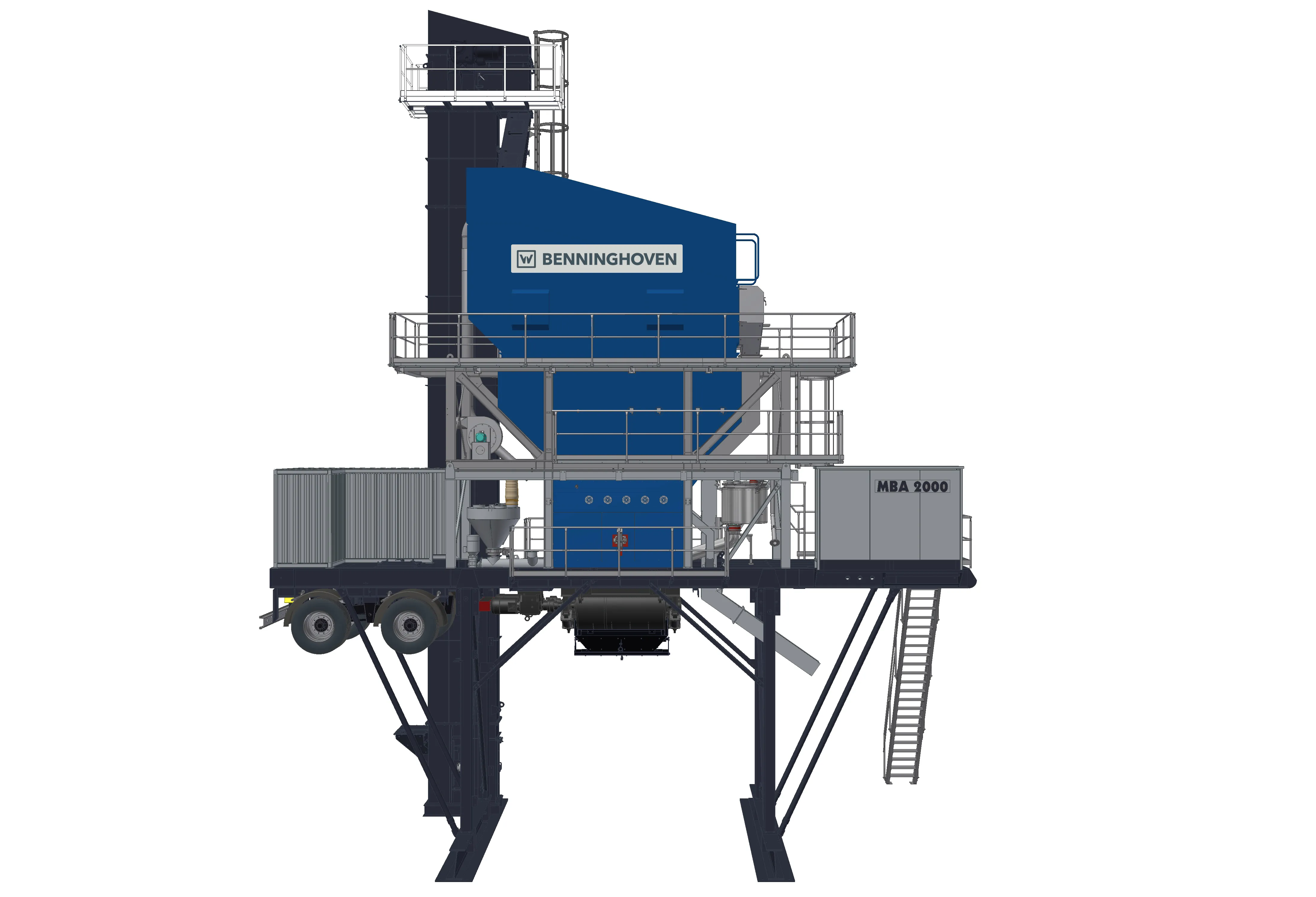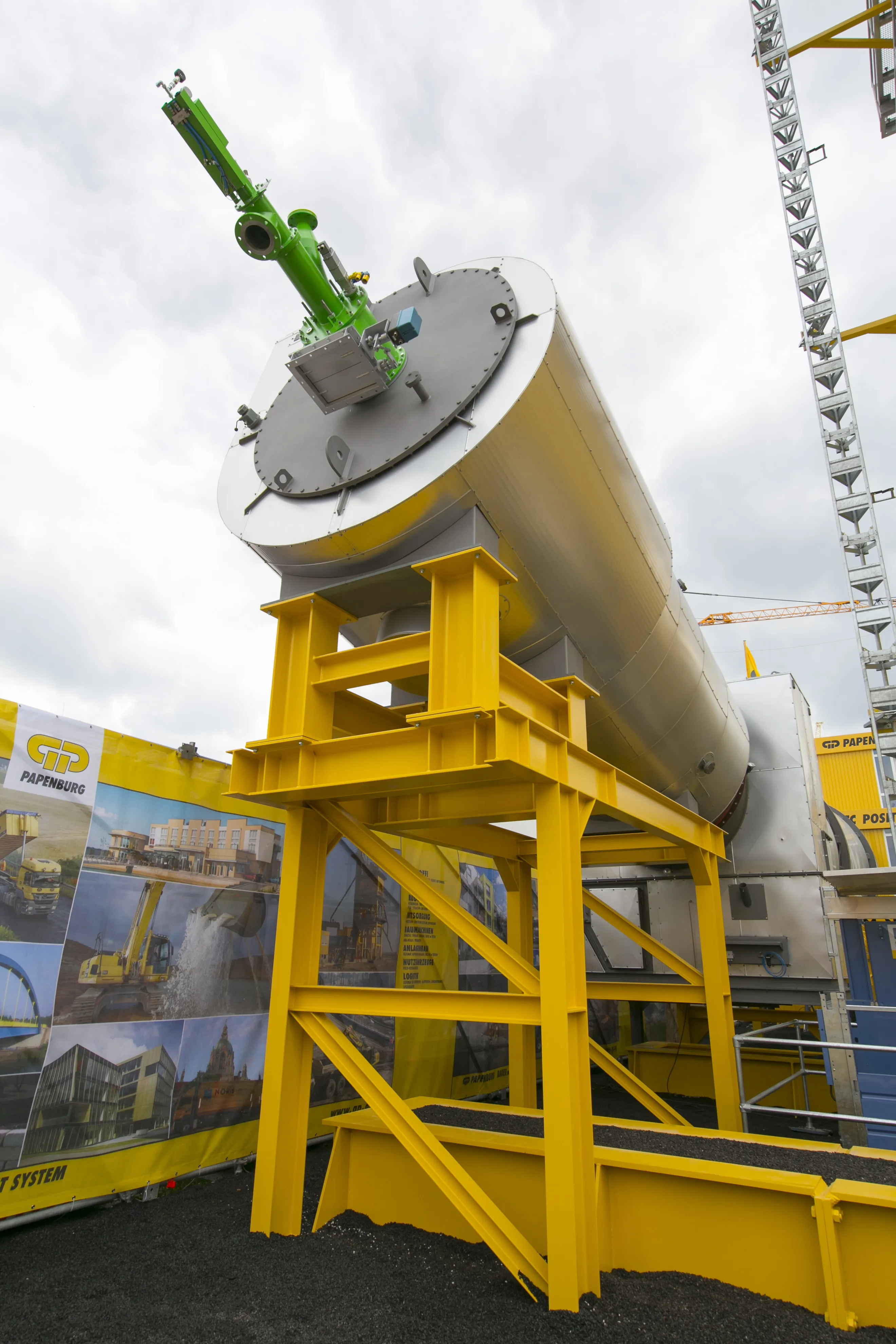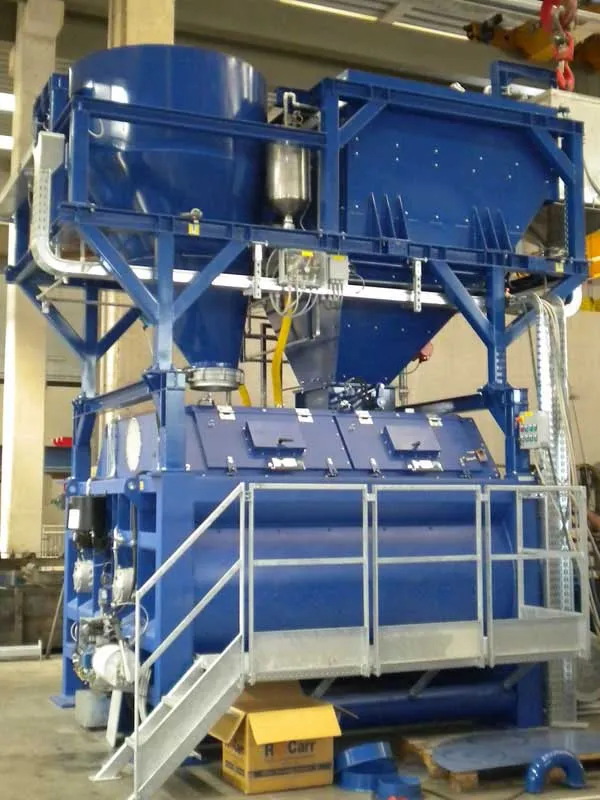Benninghoven’s new MBA 2000 mobile asphalt mixing plant is said to lead the market. The unit has five deck screening as standard, compared with conventional units that offer four deck screens. According to Henrich the plant offers a maximum output of up to 160tonnes/hour. Depending on the application, the MBA 2000 can also handle up to 25% of RAP also. Fast set up and commissioning times are claimed for the unit, as well as high mobility.
Features include effective thermal insulation of the components in
January 6, 2017
Read time: 2 mins

Features include effective thermal insulation of the components in the heated section is exemplary, further boosting efficiency. The wearing plates are said to be designed for a long service life even when using hard stone materials. The machine features a sophisticated control system, the BLS 3000, which is said to offer simple operation. All functions are displayed in the computer animation and controlled with a mouse or keyboard. In addition to fully automatic mode, the control system also offers the option of a manual operating level. This allows the mixing operator to control all actuators and valves separately. The real time representation of the mixing process with graphical and alphanumerical monitoring of set values and actual values is displayed on the monitor.
All videos









